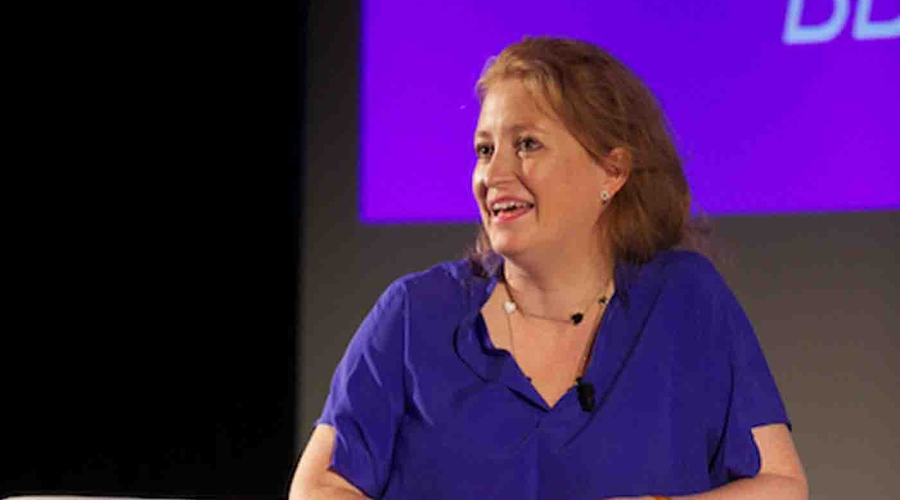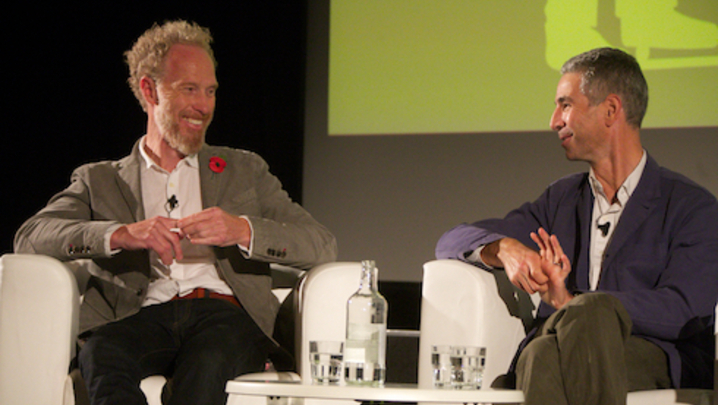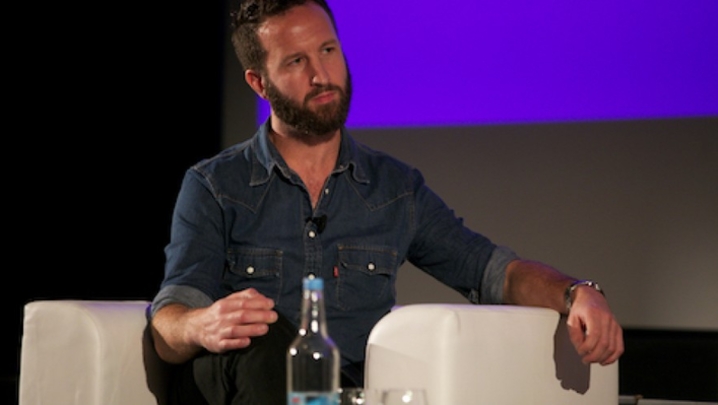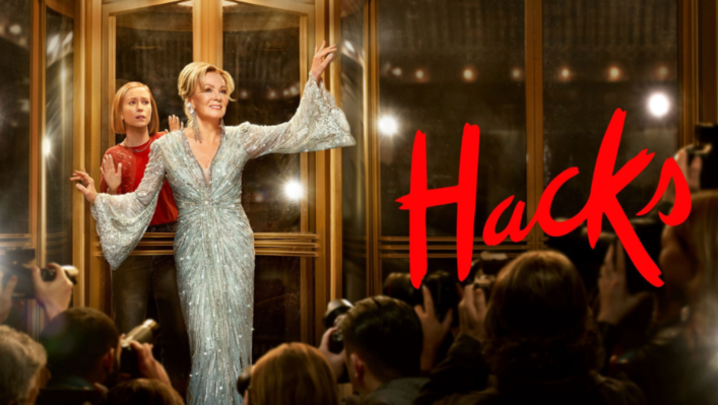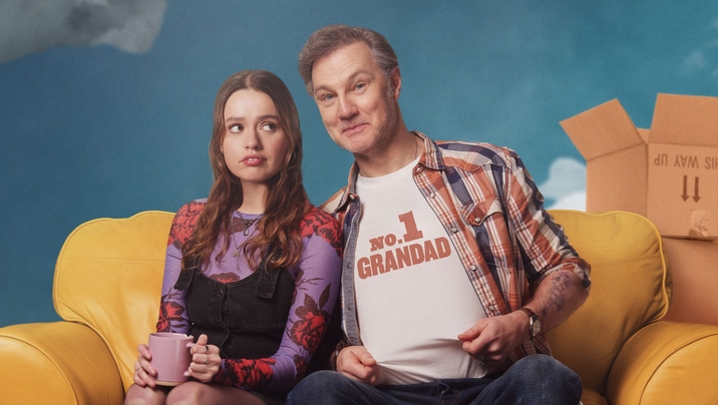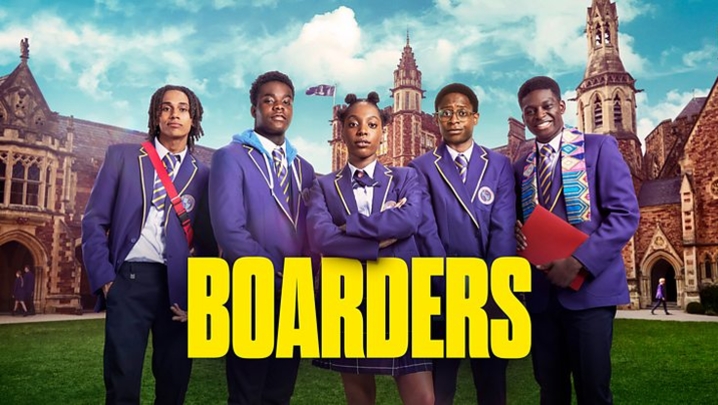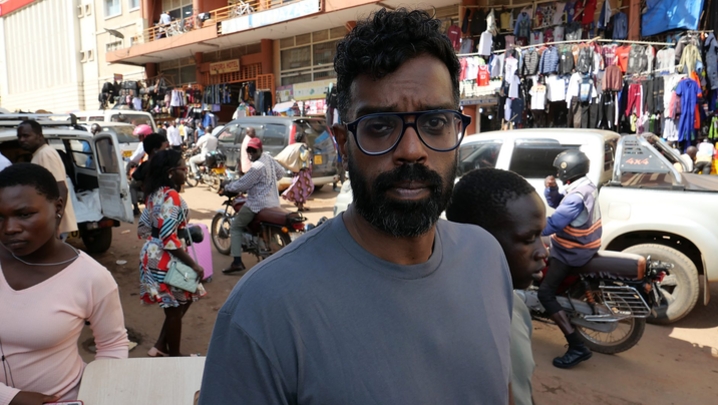Lucy Lumsden discussed how she paved her way into the television industry
Over almost two decades at the BBC and Sky, Lucy Lumsden has commissioned some of the country’s best-loved comedies, including Outnumbered, Miranda and Moone Boy.
But the commissioner has recently swapped sides – having made her first short film last year, Lumsden is now in the business of creating comedy.
The seeds of her future career were sown at Edinburgh University, explained Lumsden, who was giving the RTS comedy masterclass.
She was studying history of art – “the posh, Sloaney degree that is utterly worthless” – but was also involved in student productions at the Bedlam Theatre in the city.
The theatre was used as an Edinburgh fringe venue, which introduced Lumsden to cutting-edge comedy. “That was where I started to fall in love with the genre,” she said, “but I didn’t think I could make a career in it and left university thinking I should get a proper job.”
She was wrong. Lumsden landed work in 1992 on writer/director Peter Richardson’s series The Comic Strip Presents … which featured many leading lights from the alternative comedy scene, including Alexei Sayle, Dawn French, Rik Mayall, Adrian Edmondson and Jennifer Saunders.
Two years on the show working with Nira Park, who later produced the Edgar Wright films Shaun of the Dead and Hot Fuzz, taught her the comedy ropes.
“My God was she a hard taskmaster. It was like a military operation making TV; you were working in the best business you could imagine but you had to treat it incredibly seriously,” Lumsden recalled as she talked to the masterclass chair, BBC Comedy Assistant Commissioner Tilusha Ghelani.
“My MA from Edinburgh counted for nothing; [working on the show] was about making a good cup of tea, getting sandwiches for the writers upstairs, doing anything you were asked to do and doing it well. My two years at The Comic Strip were spent proving I was indispensable.”
A succession of “odd jobs” followed, including work as a wardrobe assistant on ITV’s 1994 version of the Arthur Smith and Chris England play, An Evening with Gary Lineker. “I didn’t have a clue what I was doing,” she recalled.
But Lumsden’s strong work ethic got her noticed. “I couldn’t sew a button on but I would show up at five in the morning and I’d be there last thing at night. If you get an opportunity seize it – learn on the job,” she said.
In the same year, Lumsden worked as a production co-ordinator on the BBC One Jimmy Nail vehicle, Crocodile Shoes.
Lumsden realised she could do “the nuts and bolts of production” but found herself increasingly fascinated by scripts.
Unhappy at the way the series was being run, she walked out. “I thought I’d never work in TV again,” she said, but the series executive producer, Linda James, got her work in comedy development at the indie, Red Rooster.
Lumsden stayed for two years. “I got to grips with scripts, reading and assessing them, figuring out what made something funny and dealing with writers,” she recalled.
A period temping at the BBC followed – “I could type really fast” – and led to a job in 1998 with the [then] Independent Commissioning Group, which commissioned shows from the growing indie sector. “I was in the right place at the right time,” she reckoned.
The first show Lumsden commissioned at the BBC was 2000’s darkly comic Human Remains, which was written by and starred Julia Davis and Rob Brydon.
The far jollier Outnumbered, which made its debut in 2007, made her reputation. “The holy grail, and it continues to be so for all mainstream broadcasters, is the family comedy,” said Lumsden.
The writing duo Andy Hamilton and Guy Jenkin, who had experienced comedy success with Drop the Dead Donkey, presented Lumsden with “a measly bit of paper that said, ‘It’s a funny, family comedy – trust us. The difference is we’ll have real kids, shot in documentary style.’ That was the treatment,” she recalled.
“What do you do when you’ve got that little to go on? It was to be an improvised show and so the script was never going to be the thing that we would judge it by. So, the obvious thing to do was to commission a taster tape,” Lumsden explained.
“The key thing was to find the kids, then we had a show,” she continued. “Its success comes from having kids who hadn’t come out of drama school, who weren’t chiselled and perfectly formed – they were real kids. That taster tape won us over in about 10 seconds.”
“It was one of those eureka moments that every commissioner wants – a no-brainer moment when you don’t have to persuade anybody because it’s so clear that it’s deserving of a series.”
The multiple RTS award-winner, Miranda, which first aired in 2009 on BBC Two before transferring to BBC One, cemented Lumsden’s standing in comedy commissioning. “I was very lucky during my time at the BBC that Miranda Hart was a young, emerging talent,” she said.
“Miranda did a very clever thing, which was to write her show and put it on radio first. She worked with a number of writers and learned how to write a sitcom, putting herself at the heart of it and making it semi-autobiographical as well.”
After 11 years at the BBC, the last four as Controller of Comedy Commissioning, Lumsden moved to Sky in 2009 to become Head of Comedy.
BBC Three boss Stuart Murphy moved to Sky in the same year where he took up the role of Sky One Director of Programmes. At the time Sky was pumping money into original drama and comedy. “We loved the people we’d worked with at the BBC and enjoyed allowing them to play with a slightly bigger box of toys,” recalled Lumsden.
She made her mark at Sky with the black comedy, Hunderby, a period drama parody created by Julia Davis for Sky Atlantic. “Partnerships are key,” she said. “Hunderby probably came out of growing a relationship across a number of other shows with her [at the BBC].”
Moone Boy, which was developed from Little Crackers, a series of 12 autobiographical shorts, gave Sky One a hit family sitcom.
Created and co-written by Chris O’Dowd, the series is set in Ireland in the late 1980s. “I’m a sucker for a big-hearted show and there’s a lot of love and heart in Moone Boy,” said Lumsden.
Supermarket sitcom Trollied, currently in its fifth series on Sky One, is probably Lumsden’s biggest success at the broadcaster.
Co-created by The Office producer Ash Atalla and made by his indie, Roughcut TV, the series is the fruit of the strong relationship Atalla and Lumsden have built.
“I’ve known Ash for the past 15 years. We’d worked on things that hadn’t been a great success but there was where we’d forged our great working relationship. Comedy has its ups and downs but every time you do something you are making your relationship stronger,” she said.
Last year, Lumsden wrote and directed a short film, Honeysuckle, starring Miriam Margoyles. Bitten by the creative bug, Lumsden left Sky in September, although she will continue to executive produce her current slate of shows until Christmas.
Discussing the unusual move from commissioning to production, she said: “I’ve done my career back to front. I’m currently directing two things and we’ll see what happens next.”
Lucy Lumsden – fielding questions and offering advice
What makes a good commissioning editor?
Lucy Lumsden: “You are spending a broadcaster’s money on something [you hope] the audience might like, not what you like. You have to put your personal taste slightly to one side … but you can’t lose your gut feel. It’s a tricky balance … I was taught early on by [then BBC Controller of Entertainment Commissioning] Danielle Lux, who was my boss for a time, [to think] ‘Where will this play? Who’s it for?’”
How do you pitch a comedy programme?
Lumsden: “Pitches for comedy are scripts … scripts are everything. How do you choose? The first thing is, ‘Does it make me laugh?’ But not just me. I always work with a team – if I chuckle, we pass it around … Does the writer … know how to construct a joke, know how to [write] a scene, know how many characters can hold your attention? There are basic areas of the craft that you’re judging – if you feel the person isn’t ready, the [script] is going to be rejected very early on.”
How do you get your script read?
Lumsden: “If you’ve got a script and it’s ready, the key thing is to make sure your producer is known to the broadcaster … Commissioners always have a pile of scripts. I know it’s frustrating because a good idea should shine above all others, but you’re dealing with human beings who get bogged down in things … Your producer’s track record is key.”
Where should I take my comedy pitch?
Lumsden: “As a commissioner you’re still reliant on big, independent companies in comedy and there are specialists too … Do your homework on who’s getting the most commissions. What sort of shows are they making? Do you like their shows? If you don’t like their shows, do not go to that company because at the first meeting you have you’ll need to flatter them about how much you like their shows. Don’t lie. Align yourself with other people who share your taste.”
Do the same rules for making comedy apply to shorts?
Lumsden: “I did a short film myself last year and all the same rules apply … story structure, characters that we fall in love with – you just have much, much shorter time. Short films are a brilliant way of honing skills.”
What are the elements of a good comedy?
Lumsden: “A delicious combination of characters, setting, something that’s fresh … with jokes that build over time to a sitcom that rewards you by the end, [and] resets itself so you can’t wait to see it next week.”
Are there any taboos left in comedy?
Lumsden: “Comedy is the genre to [tackle taboos] where we can, but judiciously. Taboos are always changing. You have to find humour in something and do it sensitively but cleverly [because] it’s a really important thing for us culturally to makes things that are unsayable sayable. As a commissioner, it annoyed me when there was a blunt use of language to get a cheap laugh or make a cheap point about a sensitive subject … We have a thing called compliance and it’s there for a reason – at the BBC you’re paid for by the public and you have to be responsible as a broadcaster.”
Has it been hard as a woman working in a male-dominated world?
Lumsden: “It’s bloody hard in the TV industry to juggle [work and having a family] and I was grateful to be working for a broadcaster [the BBC] that looked after me very well … Comedy is a very male world … I learned to be a good diplomat and articulate notes very early on, Is that a female thing? I’ve no idea, but working with [male] producers, director and writers it sort of fitted. Ying and Yang, whatever you want to call it … It possibly helped being a woman in a male world.”

